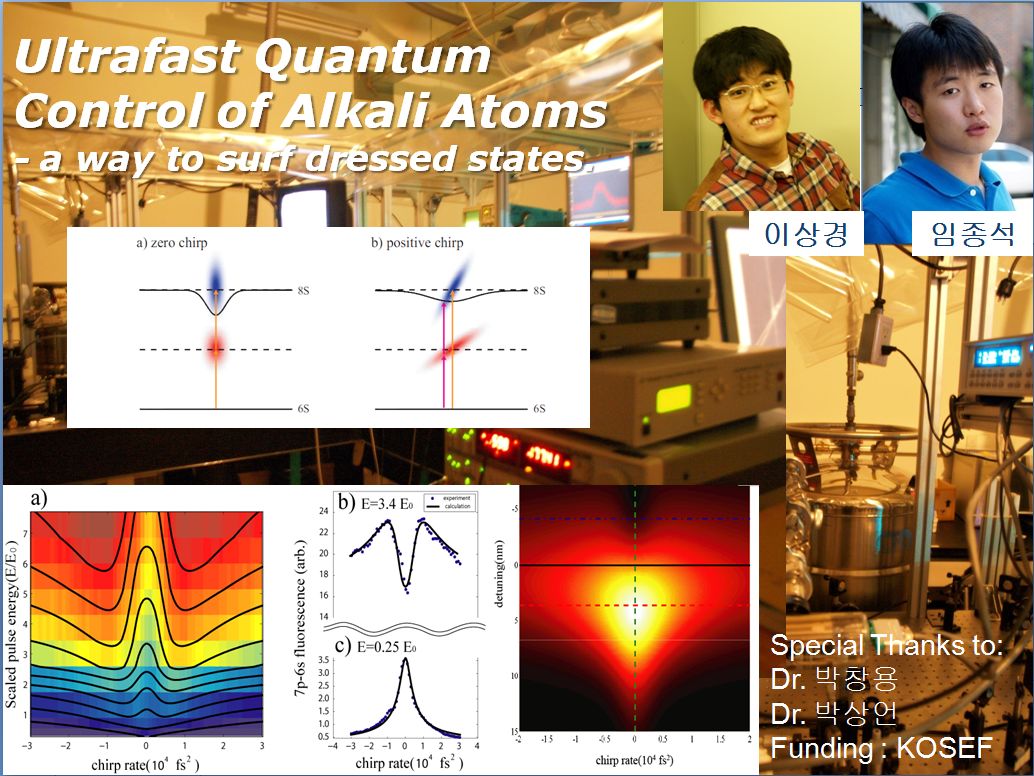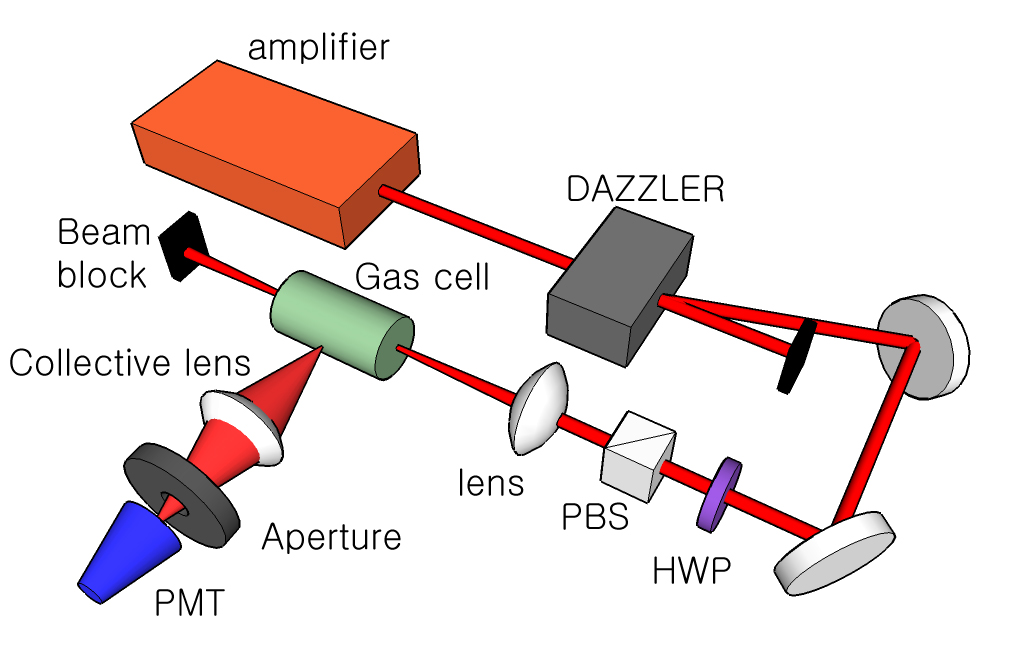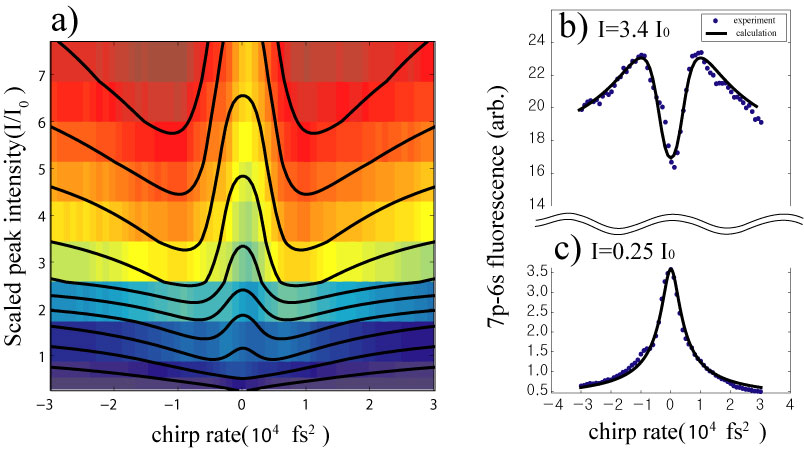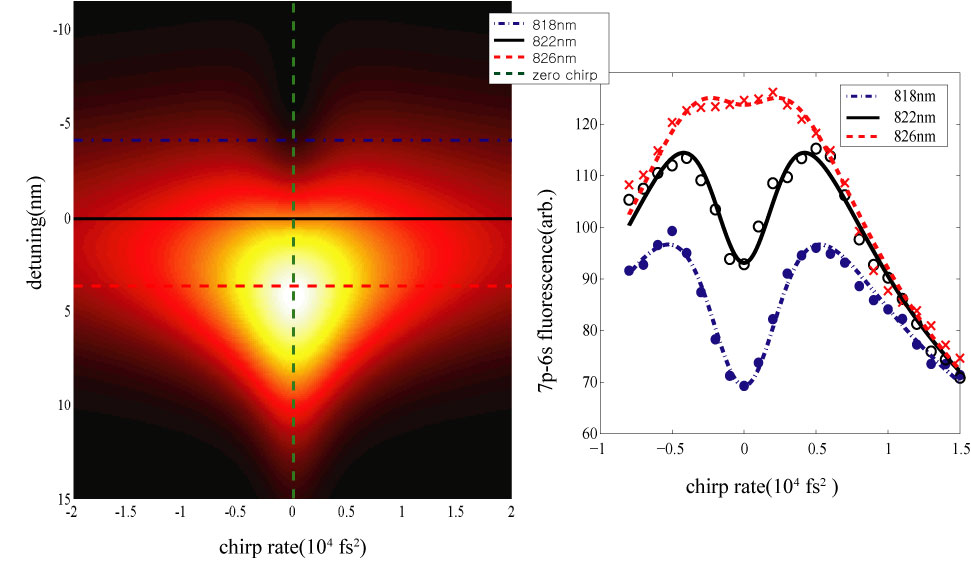Difference between revisions of "Quantum Control"
From KAIST Quantum Computing Lab Wiki
Jump to navigationJump to searchm (moved Coherent Control to Quantum Control) |
|||
| Line 1: | Line 1: | ||
== Two photon absorption in strong field == | == Two photon absorption in strong field == | ||
| + | [[Image:quantum control.jpg|center|400px]] | ||
A shaped ultrafast pulse makes it possible to stir a quantum system and thus control a quantum process via light-matter interaction. Two photon absorption(TPA) processes between two states is one of famous systema of coherent control. We study coherent control schemes for a TPA process in a strong field. For a optimal coherent scheme to enhance TPA, strong field effects(dynamic Stark shift) have to be considered. | A shaped ultrafast pulse makes it possible to stir a quantum system and thus control a quantum process via light-matter interaction. Two photon absorption(TPA) processes between two states is one of famous systema of coherent control. We study coherent control schemes for a TPA process in a strong field. For a optimal coherent scheme to enhance TPA, strong field effects(dynamic Stark shift) have to be considered. | ||
Revision as of 10:38, 10 September 2009
Two photon absorption in strong field
A shaped ultrafast pulse makes it possible to stir a quantum system and thus control a quantum process via light-matter interaction. Two photon absorption(TPA) processes between two states is one of famous systema of coherent control. We study coherent control schemes for a TPA process in a strong field. For a optimal coherent scheme to enhance TPA, strong field effects(dynamic Stark shift) have to be considered.
In weak field reigme, a transform-limited pulse is a optimal pulse to enhance a TPA. But it is not a optimal solution in strong field. The dynamic Stark shift disturbs a TPA process.
A linear chirped pulse is more optimal than a transform-limited pulse.



